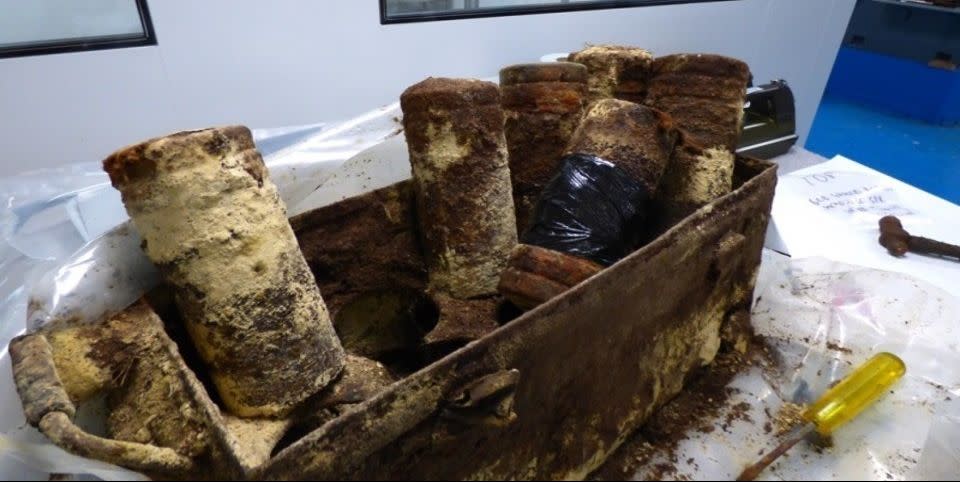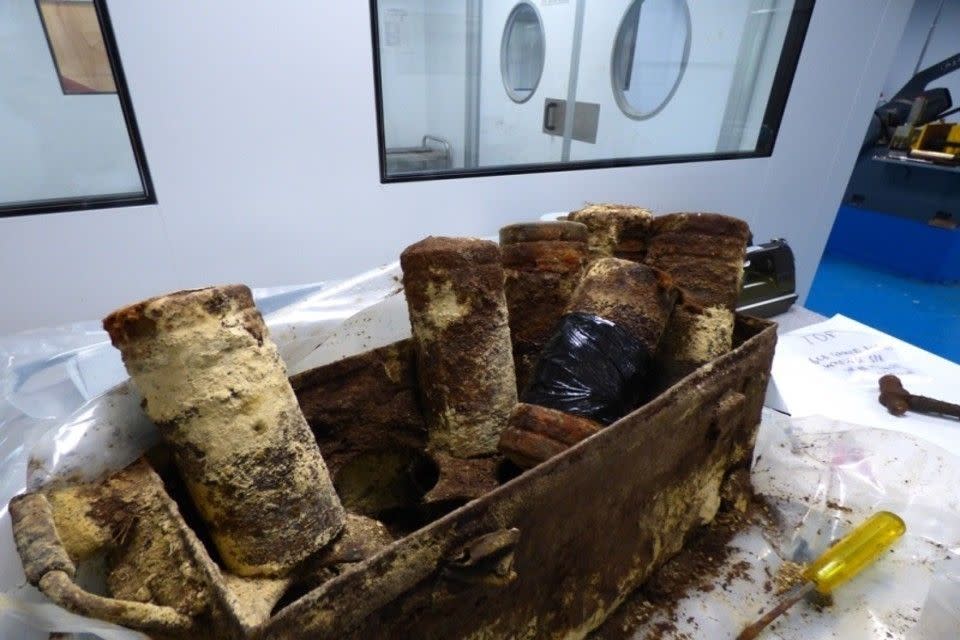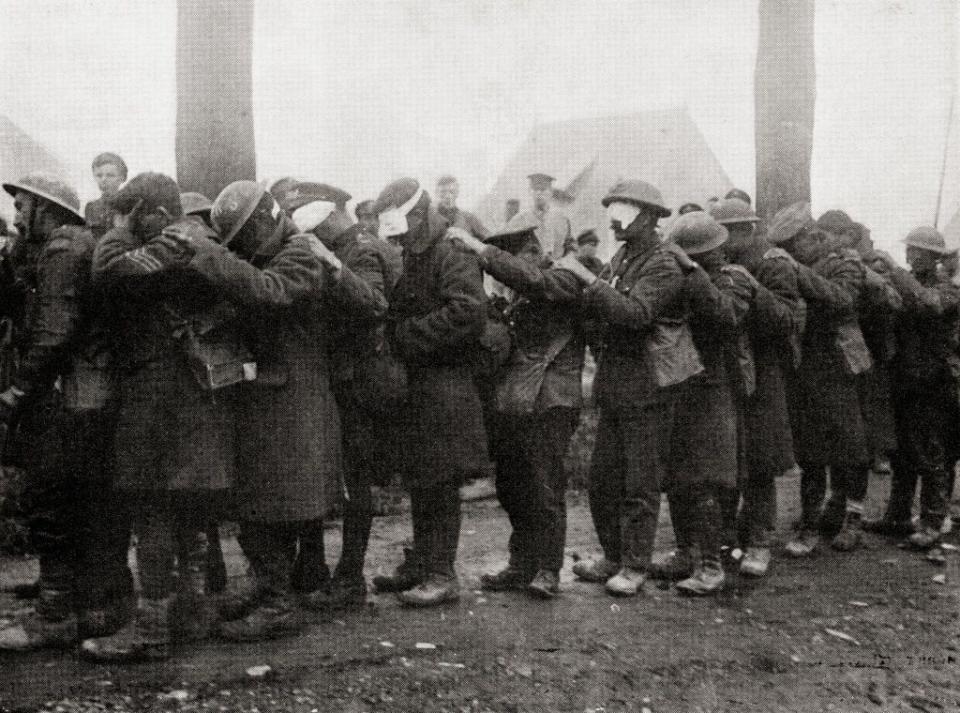It's a Bad Idea to Dump Mustard Gas Into a Lake

A man who collected military antiques was jailed after he dumped mustard gas canisters in a lake.
The canisters were found in a former World War II training ground “half buried” in the ground.
It’s believed to be the first case of jail time for private possession of chemical weapons in the U.K.
A man described as a “wartime memorabilia hunter” was sentenced to five years in prison for dumping chemical weapons in a lake. Martyn Tasker was convicted of digging up World War II-era mustard gas bombs on a training ground in the United Kingdom and then, once he, his wife, and a second accomplice, realized what they had found, they dumped the weapons in a lake on public property. Tasker and his wife sustained injuries from exposure to the weapons.
In September 2017 Tasker visited Roughton Woods, a location the British government describes as “historically requisitioned by the Ministry of Defense for military training.” Tasked asked a friend who had served in the British Army reserves what the items were but never received a response.
Ten days later, the three returned to the site and dug up a half-buried box of sixteen mustard gas canisters and three earthenware bottles. Tasker’s reservist friend finally replied, stating the containers were used to store mustard gas and advising him to contact the authorities.

By that time, Tasker had brought ten canisters of mustard gas home and had emptied the three bottles of their contents, which he described as a “really smelly oil.” The trio took the ten canisters and dumped them in a public lake.
Within 24 hours, Tasker and his wife began to suffer the effects of mustard gas exposure. Tasker sought treatment for “blisters on his forearms” while his wife Michaela experienced breathing difficulties. The three lied about the nature of their injuries but eventually their story unraveled and the authorities realized the extent of the problem. The U.K.’s Environment Agency used fish finder sonar to locate the bottles on the lake bottom and Royal Navy divers retrieved them. The bottles were then taken to Porton Down, a government facility described in 2004 as the “oldest chemical warfare research installation in the world.”
Here’s a video of the recovery operation, shot by a government drone:
Three people have received a jail term for dumping mustard gas bombs in a Lincolnshire lake. The threat sparked the largest multi-agency emergency response of its kind over 11 days. More here: https://t.co/yFAmI9bIN9 #PolicingwithPRIDE @LincsRuralCrime @EnvAgencyAnglia pic.twitter.com/BtrCe5f7FD
— Lincolnshire Police #StayAlert (@LincsPolice) June 12, 2020
According to local news, the mustard gas was part of a group of 150 bottles that the British Army had inadvertently left behind after World War II. The site of the bottles had been an army camp during the war, and the bottles had been used to expose troops to very small amounts of the gas to familiarize them with mustard gas’s unique smell. Fortunately, chemical weapons were never used in the European Theater in World War II.
Mustard gas (Cl-CH2CH2)2S), also known as sulphur mustard and the military designations H, HT, and HD, is a chemical agent designed to incapacitate enemy troops on the battlefield. According to the U.S. Centers for Disease Control and Prevention, mustard gas can smell like garlic, onions, mustard, or have no odor at all. Exposure may cause irritation of the skin, eyes, respiratory tract, digestive tract, and bone marrow. Mustard gas can even damage a victim’s DNA, but symptoms may not manifest until 12 to 24 hours after exposure.

Mustard gas and other chemical agents were used extensively during World War I, resulting in terrible, indiscriminate injuries. In 1925, a conference of nations met in Geneva, Switzerland, and signed the Protocol for the Prohibition of the Use in War of Asphyxiating, Poisonous or Other Gases, and of Bacteriological Methods of Warfare.
This is not the first time chemical weapons have been discovered on public land. In 2009, mustard gas was found on the grounds of American University. In 2019, the Belgian government discovered traces of mustard gas among 35,000 tons of World War I munitions dumped into the North Sea. Just three days ago, a beachcomber on a beach in the United Kingdom discovered a rusted mortar round that might have once held mustard gas.
Tasker received 16 months in jail for breaching the government’s Chemical Weapons Act, and was the first person charged under the 1996 law. He also received an additional five years for possession of two working World War II-era Bren machine guns.
Source: Sky News
You Might Also Like

